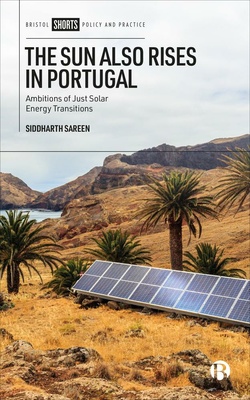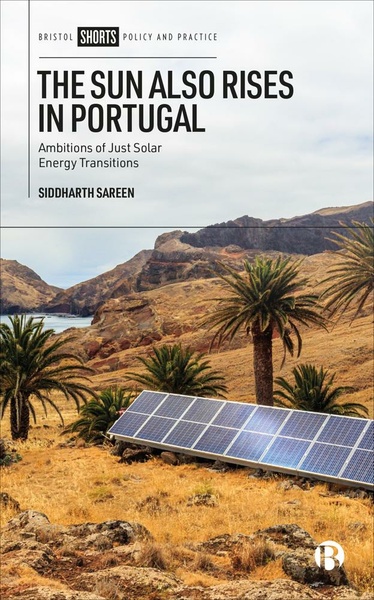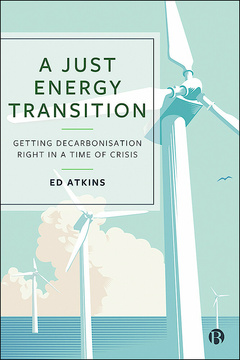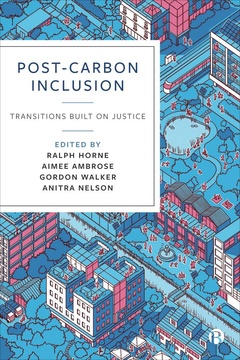Published
Jun 5, 2024Page count
168 pagesISBN
978-1529242102Dimensions
203 x 127 mmImprint
Bristol University PressPublished
Jun 5, 2024Page count
168 pagesISBN
978-1529242126Dimensions
203 x 127 mmImprint
Bristol University PressAvailable open access digitally under CC-BY licence.
Portugal is among the best-placed European countries to take advantage of solar power, having achieved a five-fold increase in installed capacity during 2017-2023 despite financial constraints. In 2023, its National Energy and Climate Plan set an ambitious target for a further eight-fold increase from 2.5 GW to 20.4 GW by 2030.
How can such fast-paced deployment secure sociospatial justice? What insights do political economic dynamics hold for future transitions? Drawing on long-term, multi-sited ethnographic fieldwork, this book is a one-stop resource for policy makers, practitioners, scholars, and anyone interested in just solar energy transitions.
Siddharth Sareen won the 2024 Nils Klim Prize, recognising his exemplary work in the search for renewable and sustainable sources of energy.
"This is a riveting and comprehensive account of a breakneck lower-carbon energy transition from a preeminent solar scholar. An indispensable tome for anyone passionate about the equity dimensions of climate change mitigation." Ryan Stock, Northern Michigan University
“Through brilliant analysis of Portugal’s pioneering rollout of solar power, leading energy scholar Siddharth Sareen illuminates why a global energy transition must provide justice as well as joules – and how it can.” James McCarthy, Clark University
"In The Sun also Rises in Portugal, Siddharth Sareen brings us on an in-depth examination of the political economy underlying the transformation of Portugal to a solar powered economy. This research describes changes to Portugal’s countryside from one dominated by locally treasured cork oak forests to an emerging solar energy landscape. He carefully situates these tensions alongside efforts to generate solar power from the rooftops of sustainable cities, or under alternative modes of governance and ownership, showing us the multiple imaginaries competing to generate future supplies of clean energy. This pathbreaking work offers readers a rigorous research design, rich empirical fieldwork, and thoughtful analysis to tell us a story that will increasingly sound familiar around the world as the global solar energy transition carries forward. This book should be read by anyone interested in a future of solar centered around justice and sustainability." Dustin Mulvaney, San José State University
"While countries across the world struggle to meet decarbonization targets, Portugal closed its last coal thermal plant years ahead of schedule thanks in large part to the rise of solar power. Sareen’s book is a brilliant study of the radical possibilities of solar futures as well as what impedes a socially just and ecologically sustainable energy transition. He argues for the embrace of community solar as an antidote to the extractivist logics of grid scale energy that currently guide decarbonization in Portugal and elsewhere." Dominic Boyer, Rice University
“This book is well worth reading for people wishing to understand the impediments to a transition to sustainable energy generation. Recommended for those studying the realities of renewable electrical generation.” Choice
Siddharth Sareen is a human geographer, development researcher and political ecologist. He is Professor in Energy and Environment at the University of Stavanger, and Professor II at the Centre for Climate and Energy Transformation at the University of Bergen.
one Introduction
two Methodology
three Solar Portugal 2017
four Solar Portugal 2018–2019
five Solar Portugal 2020–2021
six Solar Portugal 2022
seven Solar Portugal 2023
eight Conclusion














